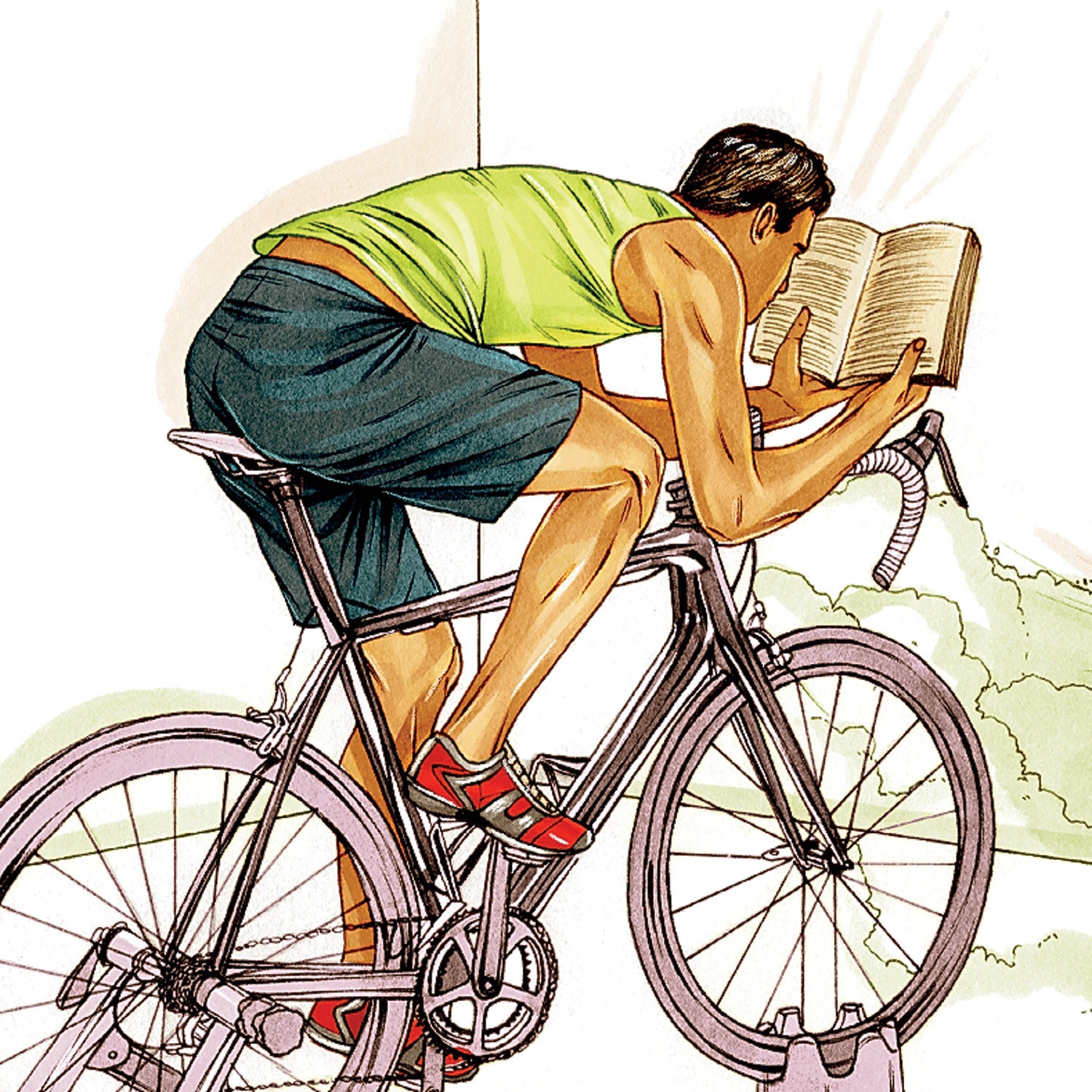For years, study after study has shown that a good sweat improves brain function. But what’s the optimum dose? Only recently are scientists figuring out the proper prescription and timing necessary to achieve the biggest boost. Following new research out of Stanford University and the Mayo Clinic, companies like Google, Reebok, and the online-coaching platform are strategically using physical activity to make employees smarter and more productive.
“They’re moving beyond just viewing exercise as something to keep their workforce healthy,” says John Ratey, a Harvard psychiatrist and author of . “They realize it’s important for performance.” Try these four tips to get a bigger cognitive boost from your next workout.
Rise and Shine
Train in the morning, says Ratey, right before you need to be your sharpest. Just 35 minutes of moderately intense running, rowing, or other aerobic exercise primes your brain for peak intellectual performance by balancing neurochemicals that contribute to cognitive functioning. While the benefits of morning exercise linger throughout the day, they are strongest in the 90 to 120 minutes following a workout.
Make it Complicated
Spend more time running trails, mountain biking, and playing tennis, says Ratey. Aerobic sports that require coordination, rhythm, and strategic thinking also promote neurogenesis, or the growth of new brain cells, making you smarter in the long haul.
Multitask
Combining brain and body tasks strengthens the anterior cingulate cortex, one part of the brain associated with perception of effort, making hard work feel easier, says Samuele Marcora, a physiologist at the University of Kent. The results are long lasting. After, say, repeatedly riding a bike trainer and reading a tricky book simultaneously, both the reading and the biking will seem easier when performed individually.
Microdose
A from Stanford University found that just ten to fifteen minutes of brisk walking can make you significantly more creative—although researchers have yet to pin down the exact reason why. One hypothesis is that the coordination required for walking occupies the brain region responsible for linear thinking, freeing up capacity for creative insight. In fact, anything that gets your heart rate up will increase blood flow to the brain and can provide an uptick in cognition. Ratey suggests strategically timing these mini sessions for the afternoon; research shows that as the day wears on, mental energy gets depleted.


